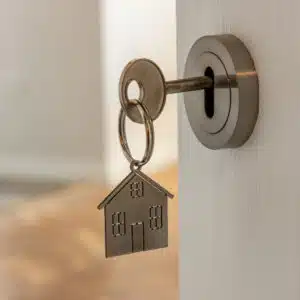Like many U.S. housing markets, Rochester, New York, has been facing a gradual decline in home sales due to a general shortage in the number of properties available. Research from the Greater Rochester Association of Realtors indicates that closed sales volume decreased by 2.9 percent in 2018 following a 1.4 percent decline in 2017.
While sales are down due to demand challenges, prices are rising. The median sales price increased 4 percent in 2017 and 7.7 percent in 2018, climbing to $140,000.
While this represents a seller’s market, it is still a fairly affordable one. The U.S. Census Bureau found that the national median sale price in November 2018 was $302,400. The Rochester region is affordable in comparison.
Rochester itself maybe even more accessible. Trulia data indicates that median home sale prices in Rochester stand at $125,000 as of late January 2019.
This relatively low cost of homes may make ownership more accessible, but homebuyers should be aware that the seller’s market gives lenders little incentive to offer especially low mortgage rates.
Table of Contents:
Current Mortgage & Refinancing Rates in Rochester, NY
Mortgage Rate Factors in NY
Rochester, New York, offers relatively cost-efficient homes, but this comes with fierce purchasing competition. Like much of the country, demand for housing is outpacing supply, creating a situation in which lenders have little incentive to bring mortgage rates down.
In a less-competitive buyer’s market, mortgage rates can decline as those consumers purchasing homes have time to explore their options and get the best deal possible. In a seller’s market, borrowers need funds quickly to ensure they’re well situated to make the right purchase at the right time.
This kind of local or regional market variance can have some influence on the kind of mortgage rate you can expect to get from a lender. However, your rate is mostly impacted by national and personal factors that indicate how much risk a lender would take on when giving you a loan.
The less risk that you present, the more likely a bank is to get a return on its investment from the mortgage. So, if you can improve your credit score, eliminate any excess debt you are carrying, or save up for a larger down payment, you can strengthen your case for the mortgage and get a lower rate.
You might not want to go through months and months of building better credit just to get a slightly better rate. Chances are you’ve already been preparing to purchase a home for years.
However, taking some time to make even small improvements to your credit score or other factors that impact your rate, can make a huge difference over the life of a loan. A few decimal points may not seem like much now, but when you save even $50 per month over an extended loan period, the benefits add up.
Some of the most influential factors when it comes to mortgage rates include:
Home Cost
Conventional wisdom is that a larger loan is going to come with a high-interest rate because that amount of funding creates more risk for the lender. Conversely, you’d think a smaller loan means a lower rate. It isn’t quite so cut and dry. The Consumer Financial Protection Bureau (CFPB) explains that there’s a sweet spot for mortgages.
If the loan is especially small, lenders will often require a higher mortgage rate to justify the costs of processing and managing the loan. If it’s large, conventional wisdom makes sense there. In practice, you’ll want to shop around getting quotes for different loan amounts and terms to get a sense of where you can find the most value.
Down Payment
This is another one that seems simple. You pay a larger down payment, you have a smaller loan. With a smaller loan, you’re going to usually have a lower interest rate, unless the loan is unusually small. But the CFPB warns that you’ll need to consider that the rate isn’t the only factor here.
A lender may offer you a lower rate when your down payment is just below 20 percent of the home cost than they would if it’s just over 20 percent. But that is because if you’re under 20 percent, you likely have to pay personal mortgage insurance. You might get a better rate, but your actual costs can end up being higher.
Points
Some lenders allow you to pay cash upfront for a direct reduction in the interest rate of your loan. This can be an exciting option if you have extra capital on hand after the down payment and want to reduce your long-term expenses.
The Federal Trade Commission recommends you explore local sources to seek out deals on points and to make sure you understand the dollar amount associated with points before you commit to the tactic.
Loan Type
Specialty loans backed by government agencies or non-profit organizations can empower lenders to offer low-interest rates or other benefits that may impact how much home you can afford. You’ll also want to consider whether you’re better off with a fixed-term loan or an adjustable-rate loan.
With fixed-rate mortgages, you get cost predictability over the life of the loan, but usually, also face higher rates. An adjustable-rate mortgage provides lower rates for a set period of time and then variable rates that shift based on market conditions.
Get the Best Mortgage Rates in Rochester, NY
Getting the best rate begins with shopping around. The advice may seem simplistic, but many borrowers don’t bother engaging multiple lenders when searching for a mortgage. As a result, they end up missing out on potential niche programs or other savings opportunities that offer the best possible rate.
The CFPB found that obtaining a 4.0 percent interest rate instead of a 4.5 percent rate on a 30 year fixed mortgage would save borrowers approximately $3,500 in payments over the first five years. This means you’d end up paying off $1,400 of the principal during that time.
Shopping around can also help you get the best deal in terms of fees. You’ll always have to pay town costs for titles, appraisals, and the like. You’ll always have to contribute to closing costs. But there are some lender fees that are flexible and can be negotiated based on your needs. Finding the best lender for your requirements is critical.
Recommended Companies in Rochester, NY
Here’s a look at four lenders that stand out in the Rochester, NY, market.
- LendingTree: This online lending exchange stands out for its wide range of options. LendingTree lets you get quotes from a variety of lenders at once, making comparison shopping a breeze.
- Ally Bank: An exclusively online lender, with surprisingly low-interest rates. As of 1/31/19, Ally Bank offered 15-year fixed mortgage rates as low as 3.5 percent.
- Northern American Savings Bank: This lender provides access to a variety of specialized loan options. In terms of its typical 15-year fixed loan, a person with excellent credit making a down payment of $100,000 on a $400,000 property can expect interest rates as low as 3.875 percent as of 1/31/19.
- CrossCountry Mortgage: CrossCountry Mortgage puts an emphasis on making homeownership affordable and accessible. To that end, it offers a fully online quoting and application process, alongside robust customer service tools, to help guide you along the way.







